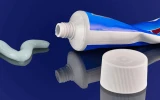Simple Tips To Reduce Your Household Waste
Published on Jun 18, 2021

There’s no denying it. Australia’s household waste rates are higher than they should be.
In fact, the Australian Bureau of Statistics reported that in the 2018/19 financial period, Australian households generated 12.4 million tonnes of waste, a 5 percent increase since 2016-17.
A few simple changes can go a long way in minimising your waste footprint – here’s where to start.
1. Buy in Bulk

Think of all the things in your home that you could be buying in bulk instead of single-use. Fewer single-use products in your home mean less packaging is being used, which is a big win for the environment.
With more and more places like Costco opening up across Australia, bulk buying is becoming big business. Coles is even getting in on the action, now offering some of its more popular products in bulk.

Your bulk buying practices will depend on your personal circumstances – this is what you need to consider:
- Storage – Some people may not have the space (in the pantry, fridge or spare rooms) to keep bulk items. Before you buy, work out where you are keeping any overflow. It may be that you can buy only a few items in bulk; focus on those you feel like you are constantly topping up during your grocery shop.
- Finances – While buying bulk will save you money in the long run, for some it may not be possible to part with that initial outlay as part of their weekly overall shopping budget.
- Perishability – Put some thought into what items you buy in bulk, focusing only on food items that will keep well. Invest in some airtight storage containers to ensure food items are free from mites and weevils.
Where To Start
- Staples such as flour, rice and pasta
- Handwash
- Baby wipes
- Toilet paper
- Nappies (keep in mind how quickly babies grow, however!)
- Dry pet food
2. Rethink Your Plastic Use

For decades, we’ve just accepted how we use plastic items at home as the norm.
But times are changing and there’s now a plethora of alternatives that will make it a little easier for both the environment and your back pocket.
Where To Start
- Toothbrushes – Replacing a plastic toothbrush every few months (the average person goes through 300 in a lifetime!) is costly for the environment, with every plastic toothbrush taking around 500 years to biodegrade.
- Shampoo – Have you heard of shampoo bars? This bottle alternative was news to me, but it makes total sense. You only need a small amount for your hair and with no plastic bottle in sight, it’s a great way to reduce waste.
- Soap – Soap bars are back! While a lot of the world switched to body wash or liquid soap in the past decade, the humble bar soap is making a comeback. It’s definitely a greener alternative and you can go as basic or decadent as you like. There are natural soaps available too through companies like Dr Bronner’s and The Australian Natural Soap Company. Even the major supermarkets are starting to stock more eco-friendly options.
- Cling Wrap – Wrapping sandwiches just got a whole lot more fun. Beeswax wraps are reusable plastic wrap which are available in a range of sizes and some really funky patterns. Look after them, and they will last about a year.
3. Tech Waste Tips

With new models constantly being released, it’s no wonder e-waste from households is on the rise. Technology like televisions, mobile phones, laptops and appliances contain a high number of non-renewable resources.
Just half of the household e-waste being generated in Australia is being recycled
Where To Start
- Many local councils offer pick-up services for e-waste throughout the year – check your local government’s website for details.
- This great Planet Ark article describes what happens to e-waste when it is correctly recycled. It also outlines some of the fantastic schemes available such as Mobile Muster and Cartridges 4 Planet Ark.
- Repair and reuse where possible.
- Mobile phones no longer being used needn’t be collecting dust in your cupboards. Here is where you’ll find phone recycling options near you.
4. Eat and Shop Smart

When it comes to our eating, drinking and shopping practices, there are a few more things we can be doing to reduce our household waste.
These are a few handy tips.

Where To Start
- Bring your own bags but do it right. This fascinating article outlines how you need to use a reusable bag at least 50 times to gain an environmental advantage over a single use plastic bag.
- Stop using plastic produce bags; most of the time, they’re not needed.
- Bring your own container if going out to dinner – that way takeaway containers aren’t needed if there are leftovers.
- Many places have stopped providing straws or are offering paper options. If you or your children use straws a lot when out, invest in a stainless straw that you can carry in your handbag.




